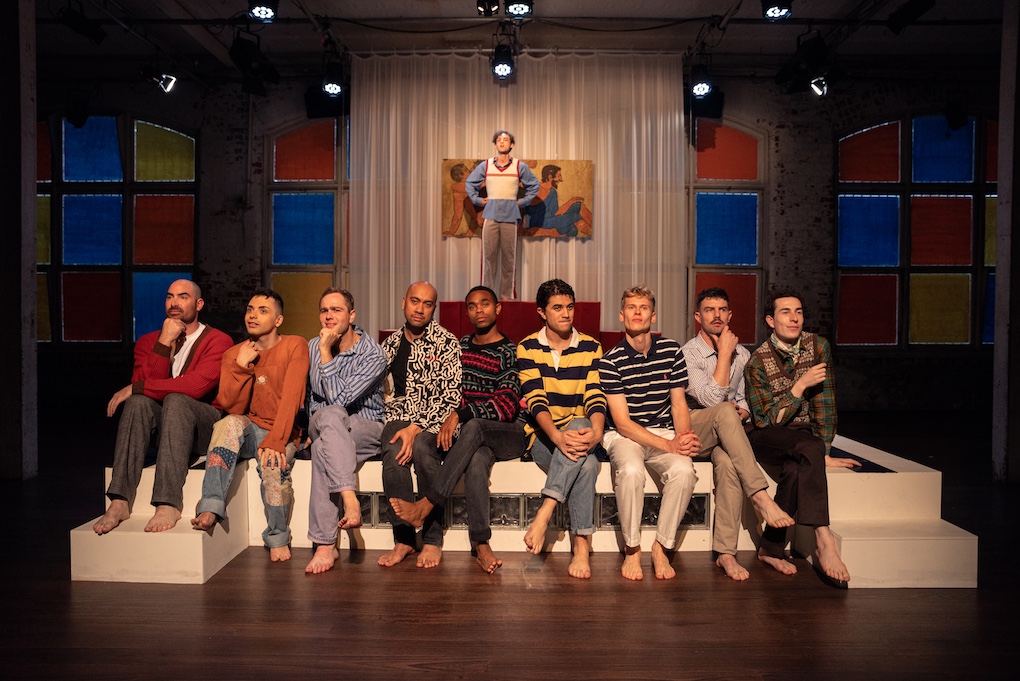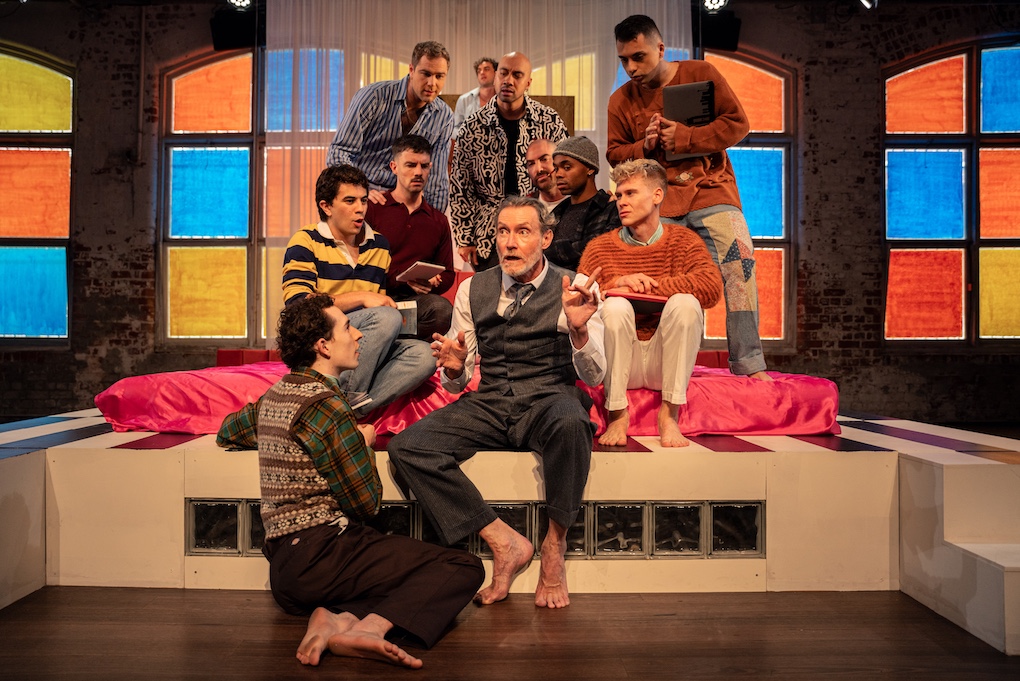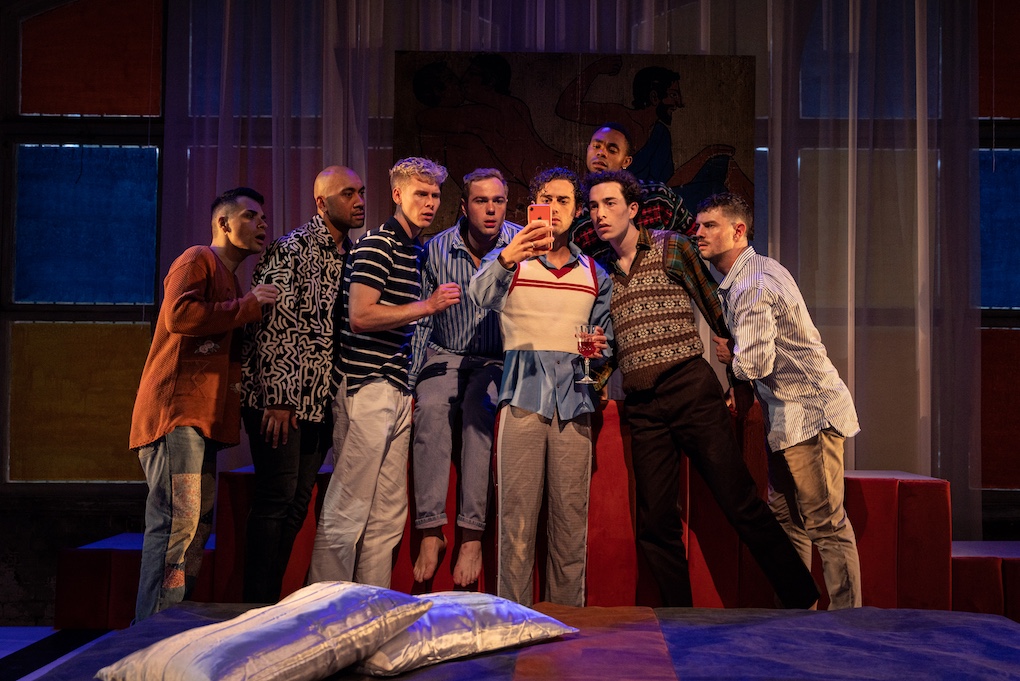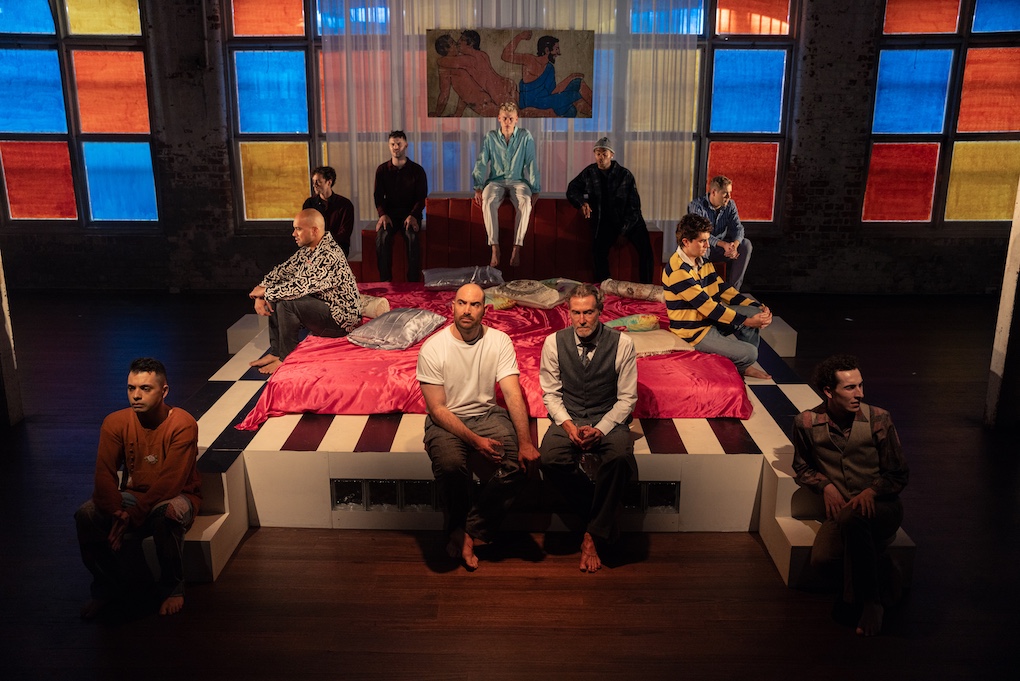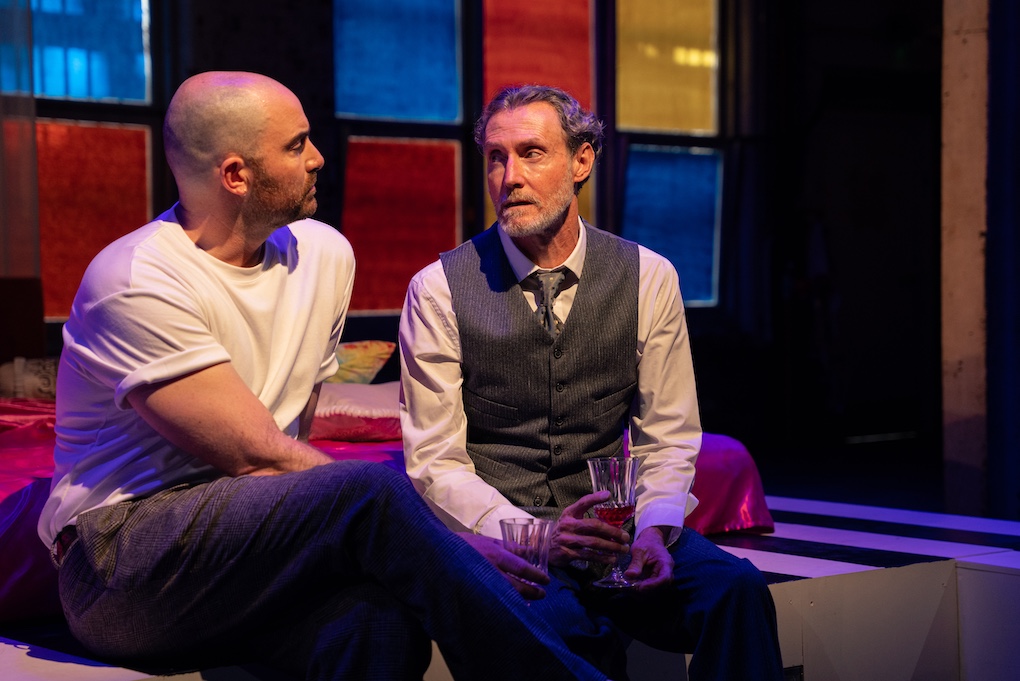A mighty achievement, the Australian premiere of multi award-winning play The Inheritance is splendidly performed, deeply moving, and wonderfully enjoyable.
More than aptly described as “epic,” The Inheritance plays out in two 190-minute parts, which ticket buyers can choose to attend on two nights or see the entire play on a Sunday, which is how this premiere performance was experienced.
Having won a slew of awards, including Best New Play at the 2019 Olivier Awards and the Tony Award for Best Play at the 2020 Awards (held in 2021), this is a landmark season for Melbourne theatregoers, with especial significance for gay audiences. Once again, it has fallen to an independent producer to present a standout piece of theatre that has been ignored by commercial producers and subsidised theatre companies. Although quite simple to stage, The Inheritance requires a relatively large cast of 13 and its long running time and two-part structure create logistical challenges. Bravo to Cameron Lukey and his team at fortyfivedownstairs for braving and more than meeting those challenges.
In a clever and deftly realised conceit, The Inheritance both adapts and incorporates E. M. Forster’s 1910 novel Howard’s End. Playwright Matthew López could have simply written a play inspired by the experiences of he and his gay friends in New York, but the incorporation of Howard’s End and, indeed, Forster himself, serve to give the modern play a richer depth and pedigree.
The play’s title refers primarily to a large house in upstate New York but additionally takes meaning in battles fought for gay rights and freedoms, the passage of HIV, and the continuance of care for those in need.
The Inheritance shares key plot points and variations of characters with Howard’s End, and repositions Forster’s use of social commentary to focus upon the world of young men living in New York after the generation that was so decimated by HIV and AIDS. Known familiarly as Morgan, Forster appears to the storytellers after Toby after a particular young man finds inspiration for his writing in Forster’s work.
López cultivates the sense that Morgan and the young men are improvising the story, a story that largely progresses under its own momentum but occasionally halts or falters until further input kickstarts the action again. This conceit and, indeed, the character of Morgan, fade away as the play moves into its second part.
The core of the story is the relationship between stalwart activist Eric Glass and driven author Toby Darling. As in the novel, a misplaced item leads to a significant meeting with a young person; here taking the form of comely youth Adam McDowell, an ambitious actor who goes on to take the lead in the stage adaptation of Toby’s novel.
Following the sudden death of Eric’s older friend Walter Poole, Walter’s partner and his sons burn Walter’s deathbed note in which he left the upstate house to Eric. Walter saw Eric as the home’s spiritual heir, and much of the remainder of the play tracks Eric’s unwitting journey to fulfil that vision.
López wisely takes his time to introduce the wide suite of characters, and director Kitan Petovski ensures that his skilful company of 13 performers brings these characters to vivid life. Aided by the intimate space, the performers make palpable bonds with the audience, culminating in a resounding ovation at the end of the full six hour performance.
López warms up the play with delightful humour, and an early sex scene is staged with audacious originality by Petovski and intimacy coordinator Bayley Turner. Some of the discourse about the state of gay life and US politics feels a little shoehorned in but the enjoyment of spending time with these characters is to be treasured.
Less than six years after the London premiere of The Inheritance, an interesting subtext has found its way into Henry Wilcox’s speech in which he marvels at the speed of HIV research, a timeline which seems now exorbitant in comparison to research and vaccines for COVID.
Set largely in Upper West Side apartments, terrific use is made of the broad playing space of fortyfivedownstairs, where designer Bethany J Fellows has coloured the bank of windows to give a warehouse conversion aesthetic. A large central platform serves as bed, dance floor, and more.
Fellows’ costumes appear simple and casual and yet succinctly support the storytelling by helping to denote characters’ age, class, and ambition. Flashiest costumes are saved for the exuberant dance party that opens act two of Part One.
Lighting designer Katie Sfetkidis washes the space with warm colour, subtly supporting the mood in conjunction with the sweetly melancholic, original music of composer and sound designer Rachel Lewindon.
Impeccably cast, the 13 performers work together with the trust and shorthand of a long-standing ensemble. Most of the performers play multiple roles, distinguishing their characters with flair.
Unafraid to explore a fundamentally unlikeable character, Tomáš Kantor imbues self-destructive narcissist Toby Darling with compelling presence, to the extent that the character is missed for stretches in which he does not appear. Charles Purcell brings a constant sense of patience and compassion to Eric Glass, gently carrying the audience along with Eric’s arduous trek to personal fulfilment.
Blessed with dual meaty roles, burgeoning actor Karl Richmond rises to the occasion, fleshing out privileged young man Adam McDowell with a traumatic backstory and taking even younger hustler Leo on a wild ride from vulnerable helplessness through addiction and disease and on to hard-won recovery. When Adam and Leo meet, Richmond performs a highly impressive scene with himself.
Dion Mills brings class and a warm sense of support to Morgan, endowing Walter Poole with similar qualities. Hunter Perske is entirely believable as a billionaire gay republican, contrasting the younger characters as a man who has difficulty expressing and loving his true self.
Iopu Auva’a, Juan Gomez, Javon King, and Joss McClelland shine in key featured roles, with additional invaluable support coming from Rupert Bevan, Christian Taylor, and Alexander Thew.
Jillian Murray arrives at the eleventh hour to deliver a heart rending monologue, sharing Margaret’s recollection of her precious son Michael’s short life and the extraordinary care he received at the house. Through Margaret’s explanation of the devastation wrought by AIDS, López posits a key message: “I think it’s because these men’s illness required that Americans think about the means by which they contracted it. It required that we look at gay men and accept their nature, accept their affection and their desire for one another as equal to our own. Most Americans couldn’t do that.”
As important as it is entertaining, The Inheritance is must-see theatre. Audiences will find themselves deeply absorbed by the characters, with the long running time fairly flying past.
The Inheritance plays at fortyfivedownstairs, Melbourne until 11 February 2024 as part of Midsumma Festival. For tickets, click here.
Photos: Cameron Grant
Categories: Reviews

